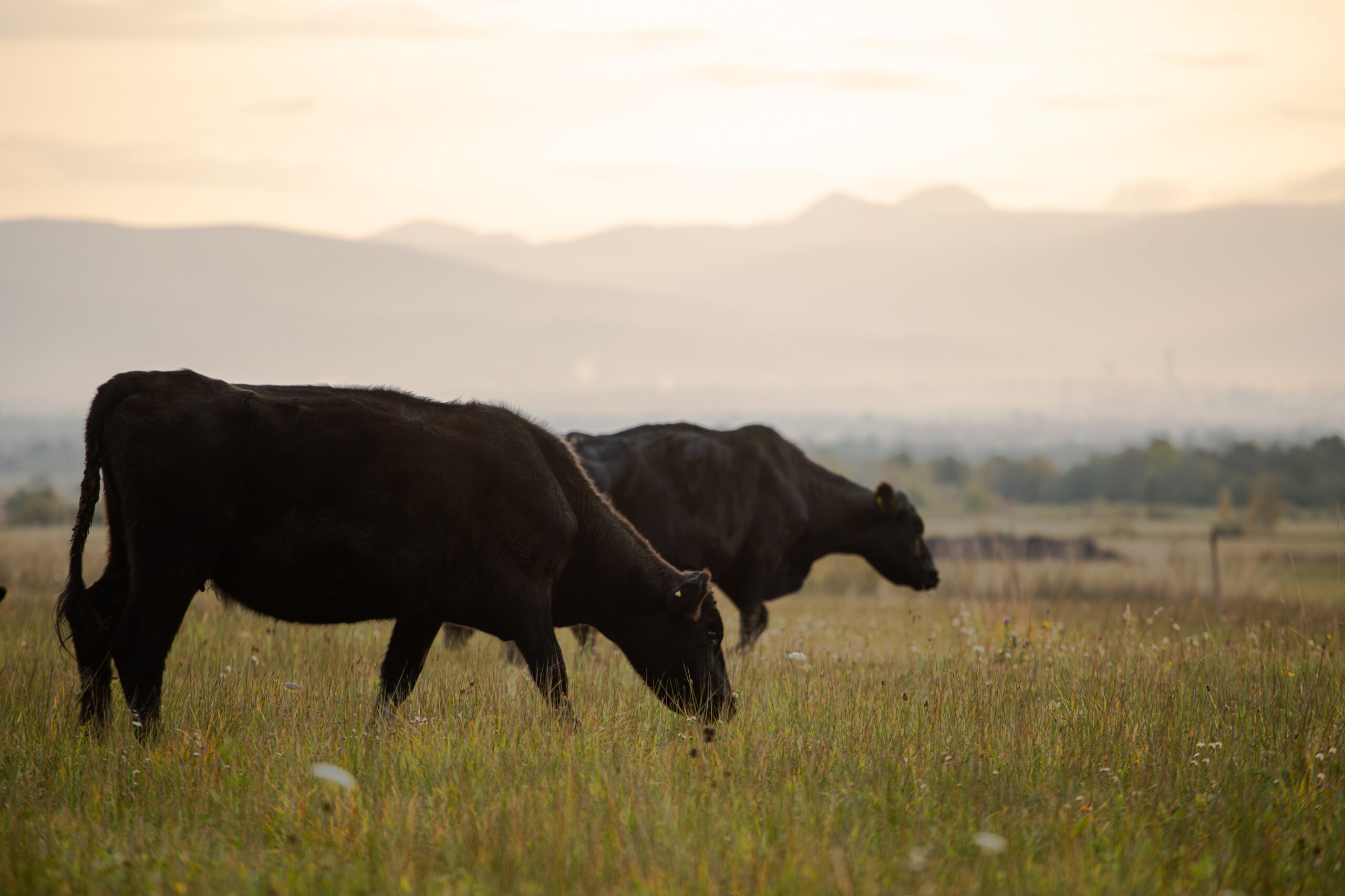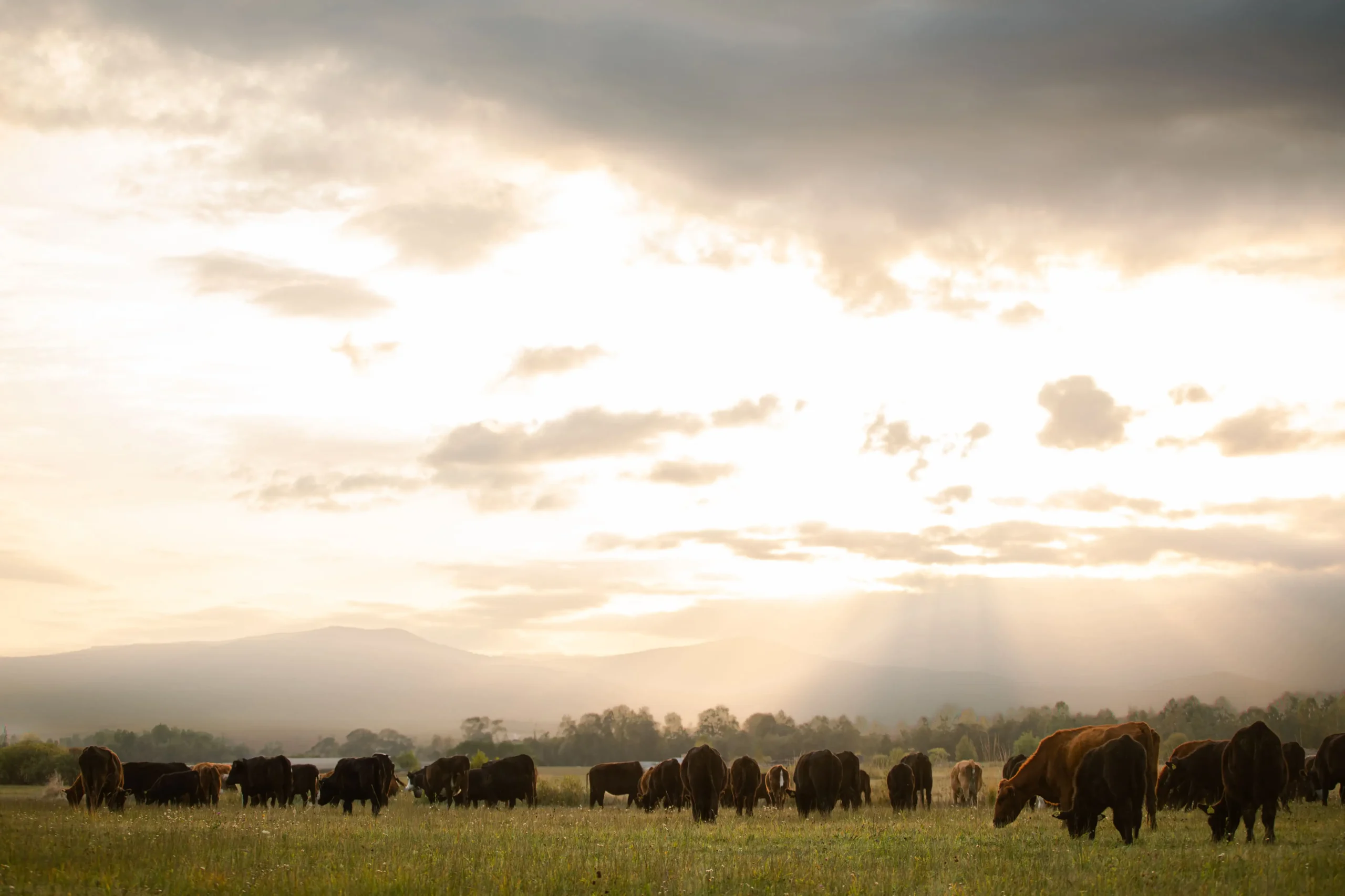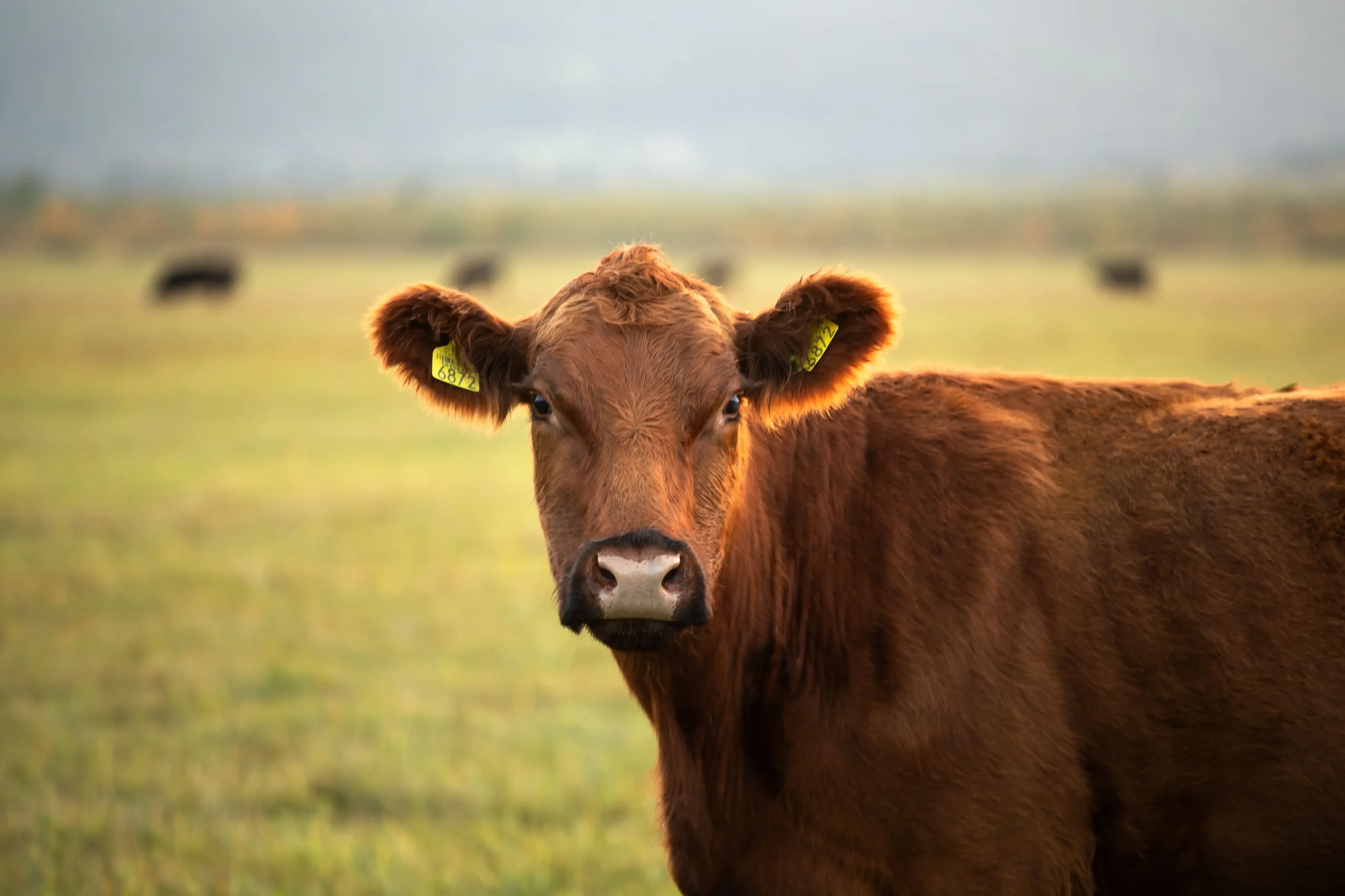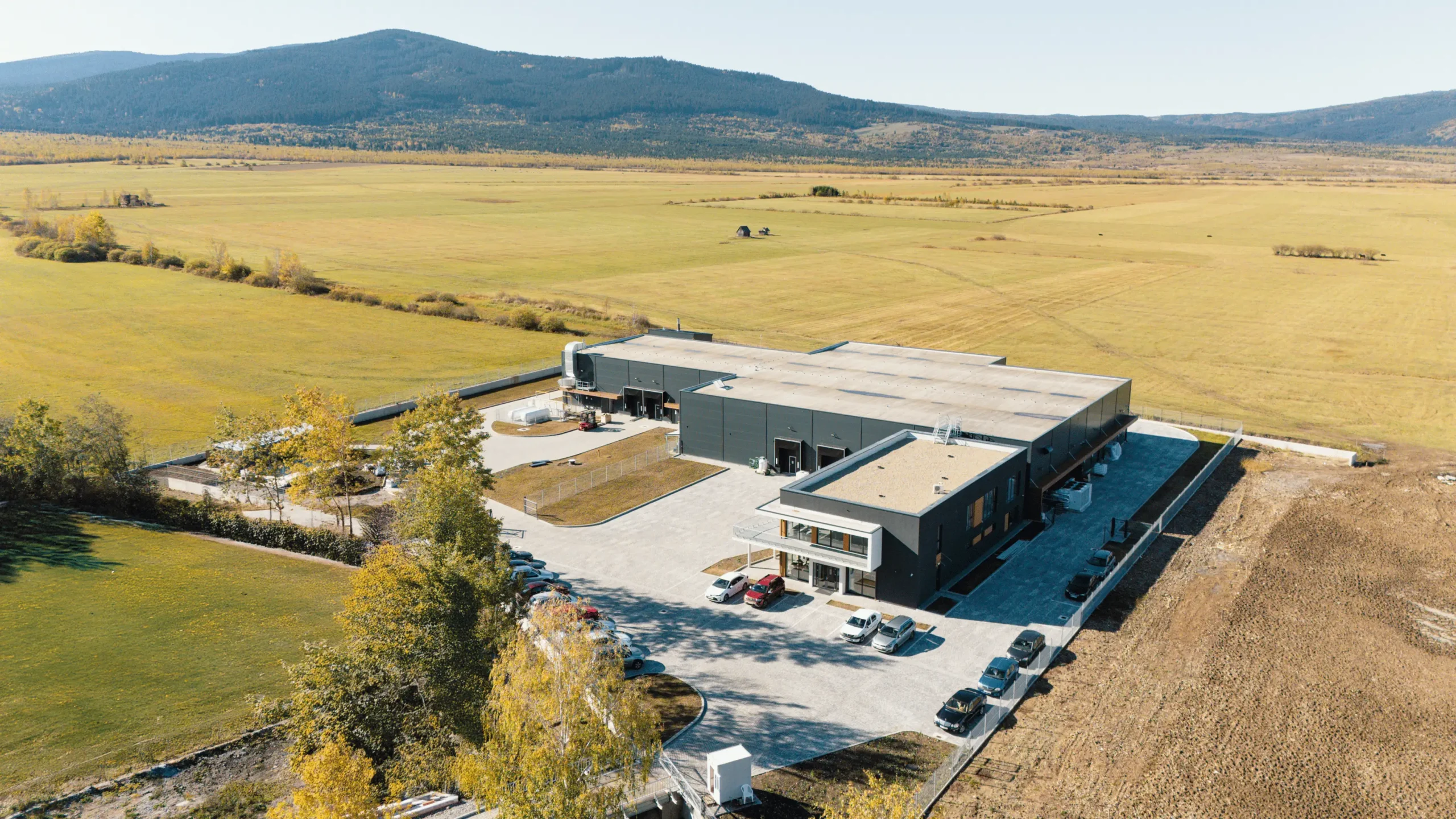
Sustainability is a key priority in raising Angus cattle. Our animals graze freely on mountain pastures, in fresh air, in a natural environment that contributes to the health of the local ecosystem. This natural growth ensures animal welfare while reducing industrial farming's environmental impact, such as harmful emissions and overuse of resources. Thus, biodiversity is conserved and natural resources are maintained, providing a source of nutritious and ecological meat.
Proximity to nature, forests, fields and rich vegetation ensures our cattle have access to fresh and healthy feed, reducing the need for imported feed. This leads to reduced carbon emissions, helping to protect the environment and reduce our carbon footprint. Angus cattle's natural diets, such as grass, hay and native plants, provide a nutritious and sustainable feed source that promotes healthy animal development.


Free-range cattle and natural environments not only support the animals' mental and physical health, but also reduce the use of antibiotics and other drugs. Healthy animals suffer from fewer diseases, so fewer production interventions are required. This approach not only benefits animal welfare, but also reduces the burden on the environment.

Cooperation with local farmers plays a key role, as it gives farms the opportunity to exploit local resources. This not only serves to strengthen regional economies, but also contributes to the stability of food chains, thus supporting sustainable development.